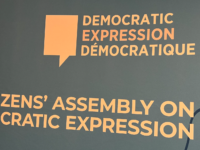Canadian Heritage Minister Pablo Rodriguez released a “What We Heard Report” on the government’s consultation on online harms earlier today. To the government’s credit, the report is remarkably candid as it does not shy away from the near-universal criticism that its plans sparked, including concerns related to freedom of expression, privacy rights, the impact of the proposal on certain marginalized groups, and compliance with the Canadian Charter of Rights and Freedoms. The report provides a play-by-play of these concerns, leaving little doubt that a major reset is required. The government telegraphed a change in approach with the Rodriguez mandate letter, which explicitly stated that the online harms legislation “should be reflective of the feedback received during the recent consultations.”
Post Tagged with: "online harms"
The (Still Secret) Online Harms Consultation: What the Government Heard, Part Two
Last week, I posted on the results of this summer’s online harms consultation, which remains shrouded in secrecy as the Canadian government still refuses to disclose the hundreds of submissions it received. That post focused on the common concerns raised in the submissions as pulled from my ongoing blog post that features links to dozens of submissions that have been independently posted. This second post highlights frequently cited recommendations. These recommendations are particularly important given that the mandate letter for Canadian Heritage Minister Pablo Rodriguez indicates that any online harms legislation “should be reflective of the feedback received during the recent consultations.”
The (Still Secret) Online Harms Consultation: What the Government Heard, Part One
The results of this summer’s online harms consultation remains largely shrouded in secrecy as the Canadian government still refuses to disclose the hundreds of submissions it received. Canadian Heritage Minister Pablo Rodriguez now leads the file, but he has said little about his department’s plans or explained why a public consultation should not feature public availability of the submissions. I have maintained an ongoing blog post with links to dozens of submissions that have been independently posted. While even a cursory review reveals widespread criticism, I’ve worked with the University of Ottawa law student Pelle Berends to do a deeper dive on the available submissions. This first post identifies the common concerns raised in the submissions with a chart breaking down the positions posted below. A second post will highlight frequently raised recommendations.
The Law Bytes Podcast, Episode 109: Striking the Balance on Misinformation and Freedom of Expression – My Examination of Canadian Policy Solutions
The Canadian Parliament is set to resume this week and it’s a safe bet that Internet regulation will be part of the legislative agenda in the coming months. One of the toughest policy issues involve misinformation, which can be difficult to define and potentially to regulate. The Canadian Commission on Democratic Expression was established in spring 2020 with a three-year mandate to better understand, anticipate, and respond to the effects of new digital technologies on public life and Canadian democracy. As part of its work, it created a Citizens’ Assembly comprised of Canadians from across the country who recently gathered for several days to debate disinformation online. Last week, I was honoured to deliver a dinner speech to the group followed by a facilitated discussion. This week’s podcast features a recording of that lecture with the slides posted here.
The Law Bytes Podcast, Episode 104: Taylor Owen on What the Latest Facebook Revelations Mean for Canada’s Online Harms Legislative Plans
Facebook has once again found itself in the political spotlight as Frances Haugen, a former data scientist and product manager with the company turned whistleblower, provided the source documents for an explosive investigative series in the Wall Street Journal followed by an appearance before a U.S. Senate committee. The Facebook Files series comes just as Canada is moving toward its own legislative response to Internet concerns, with an online harms consultation that provides a roadmap for future policies.
The Canadian initiative has sparked widespread criticism, but recent events may only increase the calls for legislative action. Taylor Owen, the Beaverbrook Chair in Media, Ethics and Communications in the Max Bell School of Public Policy at McGill University joins the Law Bytes podcast to discuss the latest revelations and what they might mean for the future of Canadian Internet regulation.











